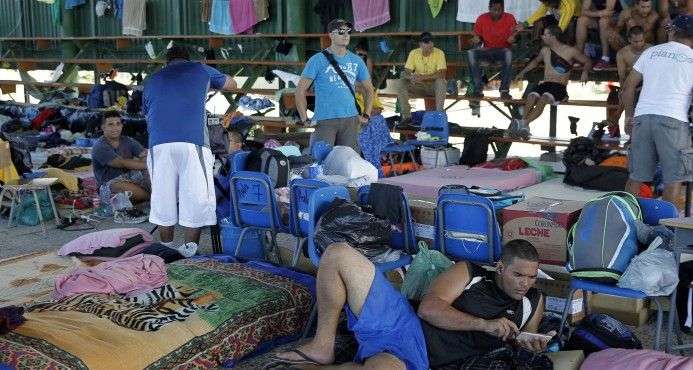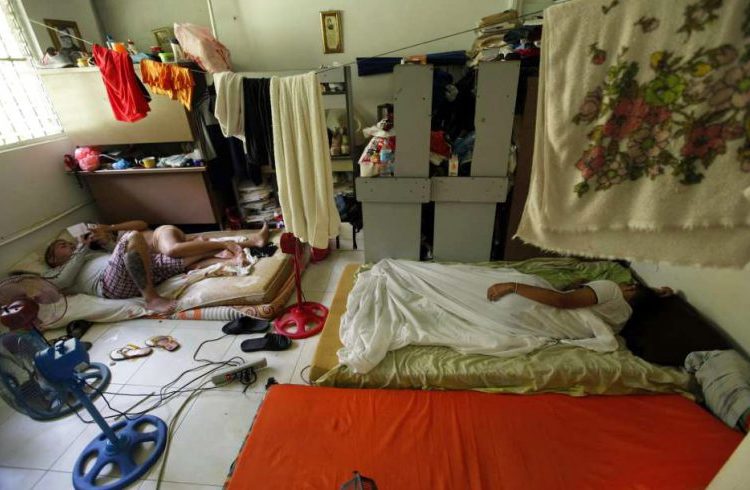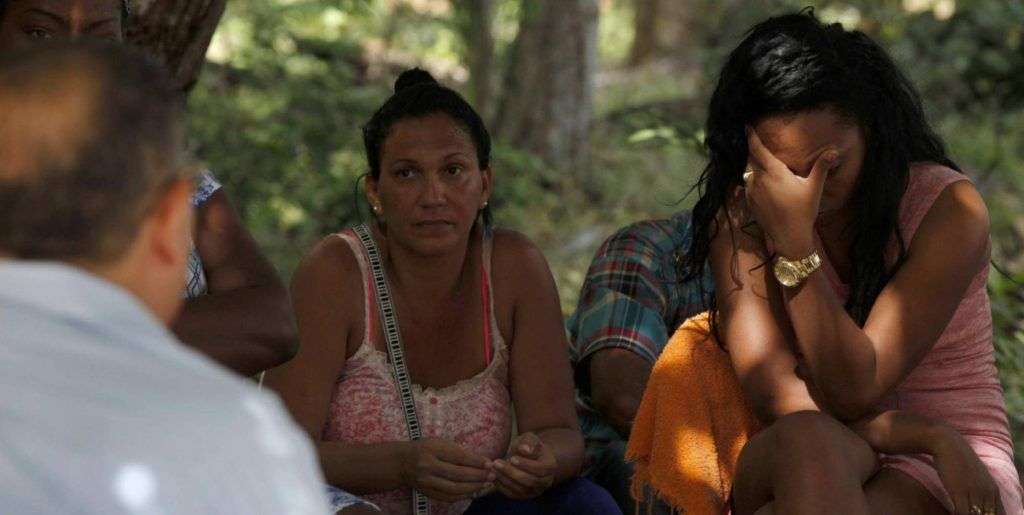Almost a week since the announced repeal of the wet foot / dry foot policy and the Parole program for doctors, there is still uncertainty among the Cubans who were on the Mexican border or in any point between the island, continental America and the United States, by sea or land. The estimated number of persons who had the intention of arriving in that country and having recourse to that recently eliminated policy runs in the thousands.
What does the process that awaits them at the end of their trip consist in? Which are the options they have in the short and long term? OnCuba spoke with Wilfredo O. Allen, a lawyer specializing in migratory issues, to find out about the legal details of the situation.
Cubans in Panama. Photo: EFE.
What happens from now on when Cubans get to the border without a visa to enter the U.S.?
When Cubans get to the border without a legal permit to enter the U.S. and want to come to live in this country they must request political asylum before an immigration officer. The approval of political asylum in the United States is not easy, for Cubans or for any other citizen. Most of the procedures are lost.
When making the request those persons will be detained and will be taken to an immigration detention camp so that, from 1 to 2 days to 4 or 5 weeks later, they will be interviewed during which they will have to demonstrate what is called “credible fear”; that is to say, they must demonstrate they have a founded fear of returning to their country. If they are unable to demonstrate that the fear is credible they will be deported immediately. For example, the rafters intercepted at sea who request political asylum are interviewed and most of them are unable to pass it and are returned to Cuba.
Those who do pass the interview will be referred to an immigration judge. There are two ways of waiting for a trial: in the detention center (if that is the case the trial can take between 4 and 5 months), or free, which can be under parole, on bail (between 1,500 and 10,000 dollars), at times placing an electronic device on the ankle to locate them.
The trial process is spent while released, and can take between 3 and 4 years. During that time the defendants cannot be legalized by marriage or through the Cuban Adjustment Act, they can only have legal status in the U.S. by winning the political asylum case. If they do, they can request residence; if they lose, they are deportable.
During these years their legal status is pending on political asylum, if they applied in time for asylum and there were no delays in Court they can request a work permit 150 days after the procedure has been initiated; but they have no other legal documentation.
However, in the case of the Cubans it could happen that “lightening trials” are applied, as it was done with the Haitians. Most of them lost them and are being deported.
What would be special now for Cubans during the process of requesting asylum compared to persons from other countries?
Nothing. The rules are the same; they have to demonstrate the same things as the rest of the persons from any country who request asylum in the United States. And the asylum procedure is always very difficult. A lawyer can cost between 3,000 and 10,000 dollars; and there are no public defenders for political asylum: they have to hire a private lawyer.

What changes for the application of the Cuban Adjustment Act?
Nothing. The Adjustment Act continues as now, unchanged. This act requires a legal entry, remaining in the United States for 1 year and 1 day and demonstrating that you are Cuban and haven’t committed any crime. If you can demonstrate that, you request residence and 9 or 10 months after requesting it you should obtain it.
Does everything continue the same as now for Cubans legally entering through a U.S. airport to stay and live in the country, that is, are they automatically given a Parole?
No, because now if they request asylum when legally arriving through an airport or to the border perhaps they will not be granted the Parole. That no longer has to be an expeditious process, perhaps they will be detained and be interviewed for “credible fear” and undergo the normal procedure for requesting asylum.
Then how would they apply for the Adjustment Act if the visas usually allow them to stay in the U.S. for some months?
It doesn’t matter. To apply for the Cuban Adjustment Act you can be illegal in the U.S. and apply for it, but you have to have entered legally.
If you entered legally and are Cuban and have remained in U.S. territory for 1 year (even if it is illegally) and you have not committed a crime, you can apply for the Cuban Adjustment Act and request Permanent Residence.
And during that year and 1 day what is the status of those persons?
When the time allowed by your visa expires you will be in the U.S. illegally. You cannot receive aid from the government or a work permit or medical aid from the government, or social security. You will be in the same conditions in which 11 million undocumented live in the U.S.
What channels do Cubans have now to live in the U.S.?
They can enter through a family petition; through a work visa; as Cubans they can enter with a tourist visa, stay illegally and in a year and one day apply for residence through the Cuban Adjustment Act…. Cubans continue having a privileged situation through the Adjustment Act; others cannot do it and must wait decades if they are not deported before.
Does it affect in any way the Cubans who are already in the U.S. with Parole?
No, the law is not retroactive.
Would this be a way for the repeal of the Cuban Adjustment Act?
No, to repeal this Act the president must announce to Congress that Cuba has had free, democratic and transparent elections. The Cuban Adjustment Act is not going to be eliminated.
As an immigration lawyer, what do you believe will be the consequences of this measure?
I believe it will create a second category of Cubans here, of Cubans with deportation orders, who will not be able to have a legal status. I believe there will be a great many deportations to Cuba and the future for Cuban emigrants will be very difficult.










